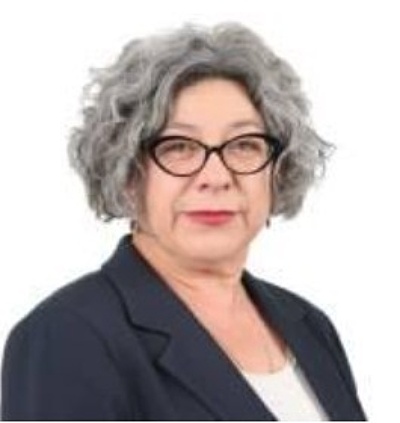
What not-for-profit leaders need to know in 2026
Posted on 12 Feb 2026
Our special NFP trends report distils the views of more than two dozen experts.
Posted on 01 Jul 2025
By Greg Thom, journalist, Institute of Community Directors Australia

Recent developments in the telecommunications industry have underlined the critical importance of connectivity for disadvantaged Australians.
This week, the first elements of a new mandatory telecommunications industry standard designed to help protect Australians affected by domestic and family violence came into effect.
The Telecommunications (Domestic, Family and Sexual Violence Consumer Protections) Industry Standard 2025 came into force on July 1.
Telecommunications consumer advocates have welcomed the introduction of the new standard which is designed to ensure victims and survivors of domestic violence receive better support from their telco provider and to remove barriers they face when seeking help.
The new rules come just a week after telecommunications giant Optus was fined $100 million for unconscionable conduct towards disadvantaged customers, including people with mental health issues, unemployed and Indigenous Australians.
The new telco industry standard will require telco providers to help protect victims of domestic violence by:
“Communications services are a lifeline for vulnerable Australians, and this Standard ensures providers must play their part in addressing the unique risks faced by people experiencing domestic, family and sexual violence."
The new industry standard was developed following input from the domestic and family violence sector, the telecommunications industry and consumer groups.
The first tranche of the new rules will become mandatory from this week.

Australian Communications Consumer Action Network (ACCAN) CEO Carol Bennett welcomed the new rules, saying her organisation had been advocating for them for years.
“Communications services are a lifeline for vulnerable Australians, and this Standard ensures providers must play their part in addressing the unique risks faced by people experiencing domestic, family and sexual violence.
“It establishes mandatory requirements around safe communications, privacy protections, staff training, credit and debt management, and specialist support channels - exactly the measures ACCAN and other consumer representatives have long called for.”
Bennett said the new industry standard would be supported by further reforms already committed to by the Albanese government.
Those reforms are designed to strengthen the powers and penalties available to the Australian Communications and Media Authority (ACMA) to enforce the new telco industry standard and penalise companies for non-compliance.
The new telco industry standard was introduced as Optus admitted to engaging in unconscionable conduct toward consumers, many of them vulnerable and disadvantaged Australians.
The penalty followed court action initiated by the Australian Competition and Consumer Commission (ACCC).
The competition watchdog said that in many cases, affected Optus customers did not want or need, could not use or could not afford what they were sold.
In some cases, consumers were pursued for debts resulting from these sales.
The ACCC said many of the affected consumers were among society's most vulnerable citizens, including people living with a mental disability, diminished cognitive capacity or learning difficulties, and people financially dependent, unemployed, having limited financial literacy or having a first language other than English.
Many of the consumers were First Nations Australians from regional, remote and very remote parts of Australia.
Optus admitted that its sales staff acted unconscionably when selling phones and contracts to more than 400 consumers at 16 different stores across Australia between August 2019 and July 2023.
ACCC chair Catriona Lowe described Optus's conduct as "simply unacceptable.
“During our investigation into this case, the ACCC heard many stories of the impact of this conduct on affected consumers,” she said.
"Many of these consumers who were vulnerable or experiencing disadvantage also experienced significant financial harm. They accrued thousands of dollars of unexpected debt, and some were pursued by debt collectors, in some instances for years.”
Lowe said it was particularly concerning that Optus used debt collectors to pursue customers – even after it had begun internal investigations into the sales conduct.

“It is not surprising, and indeed could and should have been anticipated, that this conduct caused many of these people significant emotional distress and fear.”
ACCAN's Carol Bennett thanked the ACCC for acting on behalf of those who were exploited by what she described as "appalling behaviour.
“Unconscionable conduct is a high bar and one that Optus has spectacularly surpassed in its behaviour preying on some of our most vulnerable communities and consumers, including Indigenous communities, "she said.
Optus CEO Stephen Rue said the misconduct was inexcusable and unacceptable.
“I would like to sincerely apologise to all customers affected by the misconduct in some of our stores,” he said.
“Optus failed these customers, and the company should have acted more quickly when the misconduct was first reported.”
Rue said he was personally leading the implementation of extensive changes across the company in response to the scandal.
“However, there is much more to do as we work to regain our customers' trust and improve support and protections for them, especially for those who are vulnerable."
Bennett said phone and internet products were not a luxury, but fundamental and essential services.
"To manipulate, abuse and exert control over people reliant on the product or service being sold represents a cruel and uncaring approach," she said.
"It beggars’ belief that Optus or any telco could feel this behaviour is acceptable.”
Consumer sentiment research recently released by ACCAN revealed that 41 per cent of consumers said they didn’t trust their telco to act in their interests.
Another 24 per cent said they felt pressured into signing up for a more expensive plan than they wanted.
ACCAN has joined a coalition of 22 other consumer groups to launch the Fair Call Campaign calling for industry regulator the ACMA to overhaul the self-regulated Telecommunications Consumer Protections (TCP) Code to better protect consumers.
"Consumers need direct regulation of sales practices and credit assessment to ensure this kind of exploitation (by Optus) never happens again,” said Bennett.
Community sector organisations operating on the frontline are increasingly recognising the importance of mobile phone ownership and online connection to people in need.
One example is an initiative by the Hungry Pug cafe in Mareeba, north Queensland, which used $2,200 raised through customer tips to donate 40 mobile phones to charity.
The phones were given to the Cairns Regional Domestic Violence Service, will be used to help people leaving abusive relationships, by offering them a safe way to stay connected with support services and family.
Donated devices key to bridging the digital divide for disadvantaged students
Measuring what matters: Digital ability is key to modern life for all Australians
Push to help struggling telco customers
Podcast: Call for cheaper internet for financially struggling Australians

Posted on 12 Feb 2026
Our special NFP trends report distils the views of more than two dozen experts.

Posted on 11 Feb 2026
The ballooning cost-of-living crisis is affecting Australian families to the extent that many…

Posted on 11 Feb 2026
Rev. Salesi Faupula is the Uniting Church’s moderator for the synod of Victoria and Tasmania. Born…

Posted on 11 Feb 2026
Service providers have expressed cautious support for the federal government’s Thriving Kids…

Posted on 11 Feb 2026
Australia’s not-for-profits need strategic investment by the federal government to support the…

Posted on 11 Feb 2026
For the first time, charities commissioner Sue Woodward has confirmed the Australian Charities and…

Posted on 11 Feb 2026
Opinions polls insist Pauline Hanson's fortunes are on the rise, but it is likely that enthusiasm…

Posted on 10 Feb 2026
As my family dropped our teenage son off at the airport in the first week of January to embark on a…

Posted on 04 Feb 2026
Last week’s announcement that women made up only one-third of recipients in the Australia Day…

Posted on 04 Feb 2026
As we move into 2026, I can’t help but think the world is wobbling a little.

Posted on 04 Feb 2026
An academic studying the phenomenon of “headline fatigue” – where news consumers tune out of…

Posted on 04 Feb 2026
In this time of escalating climate impact, the head of Australian Ethical Foundation, Kate…